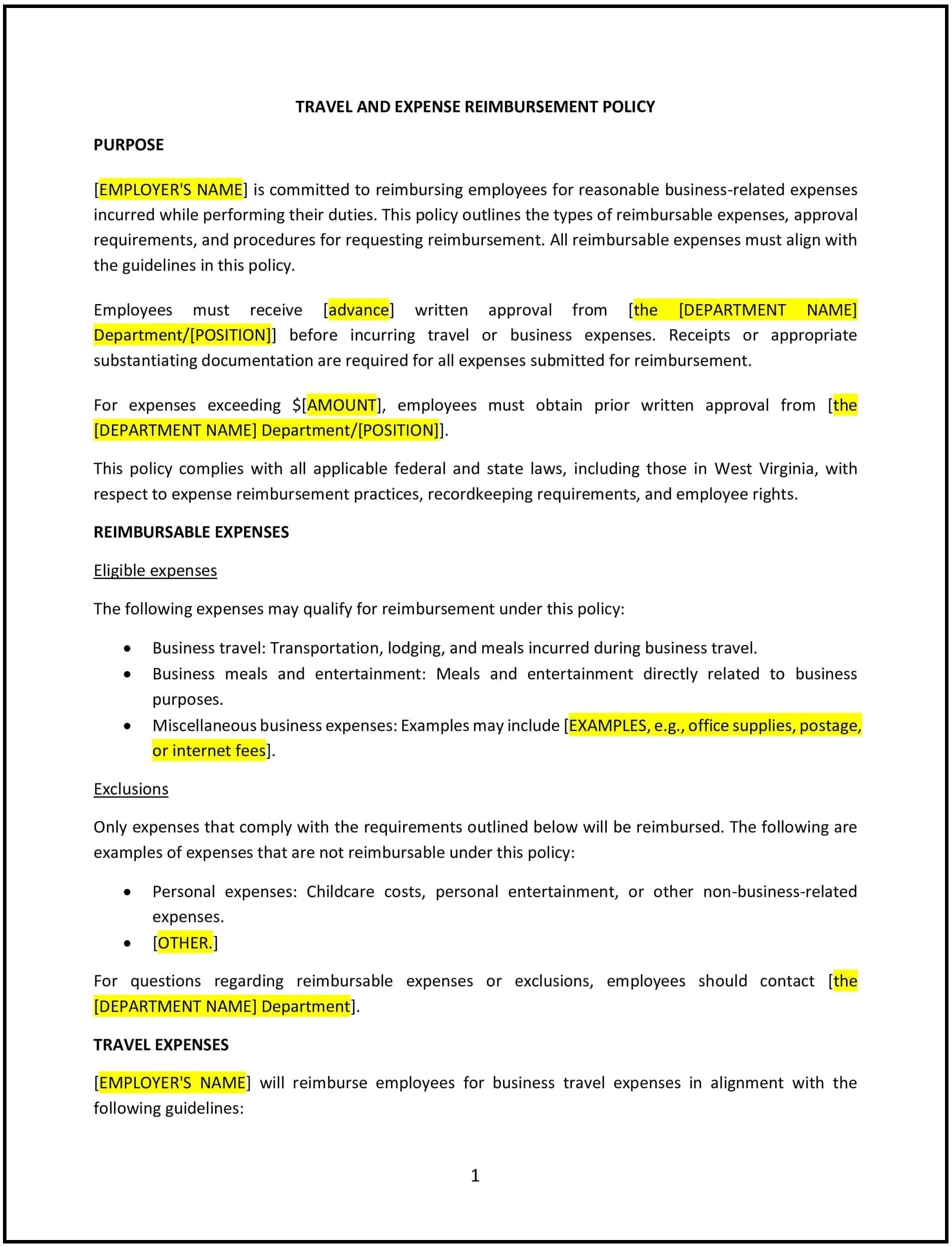Travel and expense reimbursement policy (West Virginia): Free template
Got contracts to review? While you're here for policies, let Cobrief make contract review effortless—start your free review now.

Customize this template for free
Travel and expense reimbursement policy (West Virginia)
In West Virginia, a travel and expense reimbursement policy outlines an organization’s guidelines for reimbursing employees for expenses incurred during work-related travel. This policy ensures consistency, transparency, and supports compliance with federal and state laws, while streamlining the reimbursement process.
The policy defines eligible expenses, approval processes, and documentation requirements to maintain accountability and fairness in expense management.
How to use this travel and expense reimbursement policy (West Virginia)
- Define eligible expenses: Specify reimbursable expenses, such as transportation, lodging, meals, and other work-related costs incurred during travel.
- Establish reimbursement limits: Include guidelines for expense limits, such as per diem rates for meals and lodging, based on company policies or federal guidelines.
- Outline approval procedures: Detail the process for obtaining pre-approval for travel and submitting expenses for reimbursement.
- Require documentation: Specify the required supporting documents, such as receipts, invoices, or travel itineraries, to validate reimbursement requests.
- Support compliance: Align the policy with West Virginia labor laws and IRS guidelines to ensure lawful and tax-compliant reimbursements.
Benefits of using a travel and expense reimbursement policy (West Virginia)
- Promotes consistency: Establishes clear guidelines for managing travel expenses and reimbursement requests.
- Enhances transparency: Ensures employees understand the types of expenses that qualify for reimbursement and the approval process.
- Supports compliance: Aligns with federal and West Virginia laws, minimizing risks of tax or regulatory issues.
- Encourages accountability: Requires proper documentation and approvals to maintain accurate records and prevent misuse.
- Improves efficiency: Streamlines the reimbursement process, reducing delays and administrative burdens.
Tips for using a travel and expense reimbursement policy (West Virginia)
- Communicate the policy: Share the policy with employees during onboarding and before work-related travel to ensure clarity.
- Train managers: Provide guidance to supervisors on approving travel requests and reviewing reimbursement claims for accuracy.
- Leverage technology: Use expense management software to track, submit, and approve reimbursements efficiently.
- Monitor compliance: Conduct periodic reviews of expense records to ensure adherence to the policy and prevent misuse.
- Review periodically: Update the policy to reflect changes in West Virginia laws, IRS guidelines, or company practices.